An Ocean Away
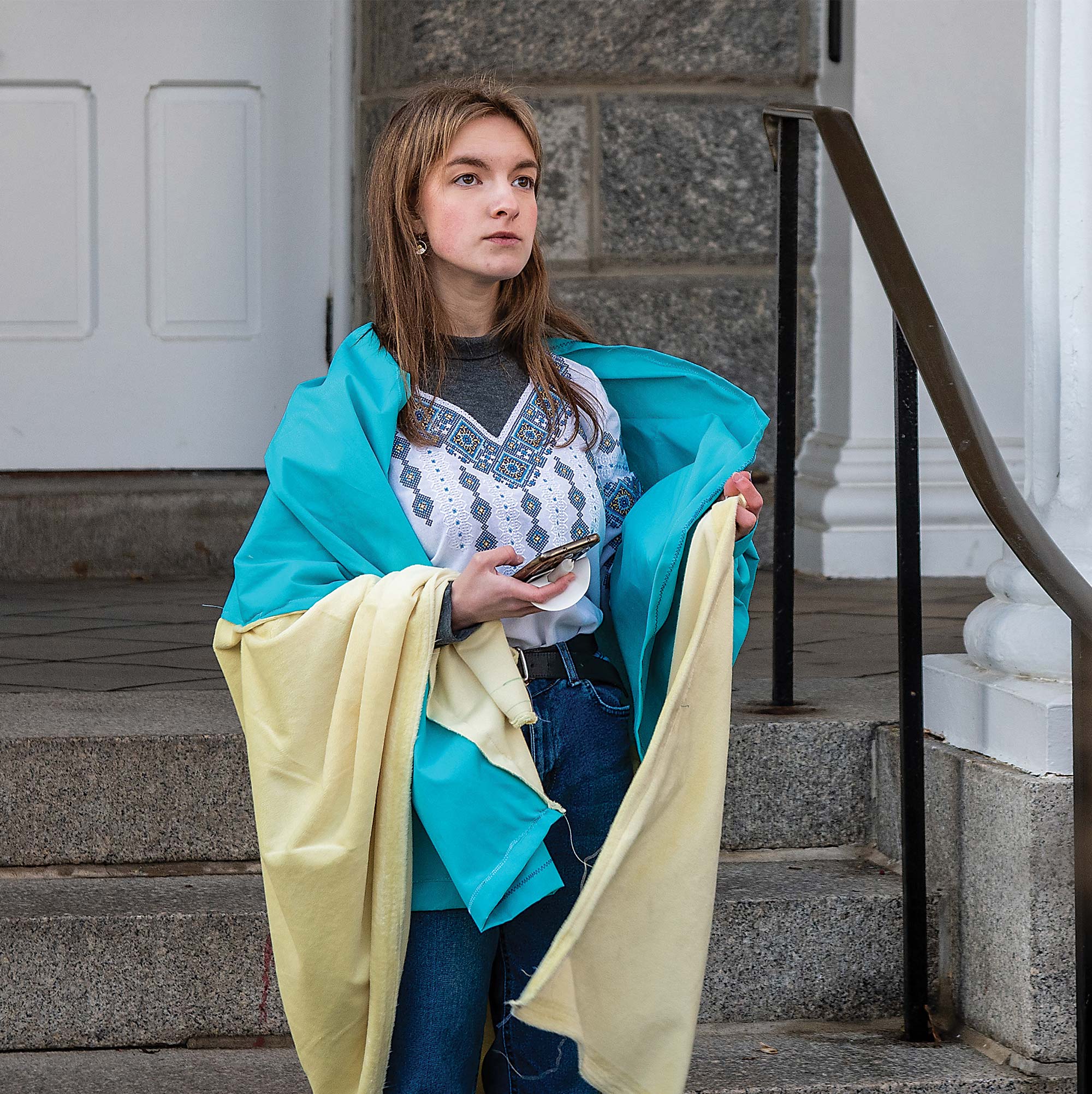
iktoriia Zakharova ’24 and her family live in Kryvyi Rih, a central Ukrainian city that is also the hometown of Ukrainian President Volodymyr Zelenskyy.
Since the onset of the war in Ukraine in February, air-raid sirens were a part of residents’ daily lives.
“At least every night, the biggest cities of Ukraine and some villages get five to 10 air-raid sirens,” says Zakharova. “So people have to go and hide in a bunker or a corridor or hallway or something, so that way they can be protected. My parents are like that.”
In response, Zakharova begain raising funds in March for humanitarian aid at home. With the support of College community members, she had raised more than $4,000 by April.
“The day the bombing started, it was really shocking,” says Zakharova, a computer science and political science double major. “The Interfaith Office reached out to me asking if I wanted to do a vigil, so we did a one on [February 25], which was pretty cool.”
Close to 30 people attended that peace vigil and a second one held on March 15.
“I feel like all Ukrainians right now, especially those in safety and abroad, share a common feeling of survivor’s guilt, and a really, really strong desire to help,” Zakharova says.
“I’ve heard so many friends of mine who are in American colleges and from Ukraine expressing how guilty they feel to be in safety. So we are trying to help as much as we can without the opportunity of being there in the front line or volunteering there physically.”
When Zakharova’s boyfriend, also studying in the U.S., started a fundraiser to aid Ukrainian forces defending his city, Zakharova decided to join him.
“I donated to both them and my hometown,” she says. “His mom bought necessary supplies and groceries for the soldiers there. My dad in my hometown would buy groceries for senior citizens who can’t get out of the house.”
Zakharova’s idea was to hang posters across campus. “I posted on my Instagram, asking my friends to come help me. They grabbed the posters, hung them up at Sharples, dorms, the Science Center, everywhere.”
An engineering student, Joshua Vandervelde ’23, suggested creating mini Ukrainian flags and distributing them around campus.
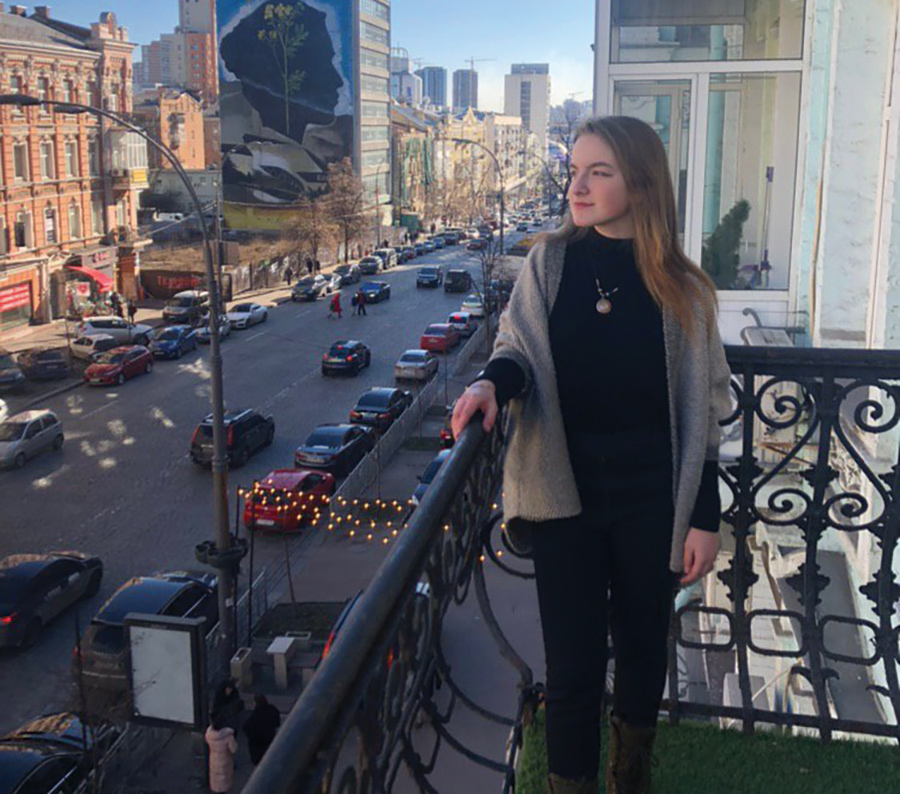
Jillian Provaznik ’25 offered to help Zakharova’s fundraising efforts with a cookie giveaway, which became the main fundraising event.
“[Jillian] offered to have a bake sale and fundraise for Ukraine,” says Zakharova. “She said she could bake cookies in her dorm kitchen. We had volunteers, like my friends, coming in and helping me. We baked around 150 cookies.”
During this time, student filmmaker Olivia Medeiros-Sakimoto ’25 reached out to Zakharova to interview her for a film to raise awareness about the war. It evolved into a personal, meaningful effort.
“She made this beautiful video about Swarthmore’s efforts to fundraise — she included the posters in there, the cookies, a lot of info about what’s going on in Ukraine, and a lot of links about how you can help.”
The cookie giveaway, held in March, was a success. Each cookie had a tag with her Venmo and QR codes to help Ukraine, says Zakharova. “A lot of people donated … we only had four cookies left.”
Zakharova says the more than $4,000 raised from the Swarthmore community thus far was “more than we expected.”
“I was comforted by all the messages when it happened, and all the support I got, and all the volunteers who helped me with the bake-in event and posters and little flags,” she adds. “I’m really glad that Swarthmore understands that even being an ocean away, they can still make a big difference for a really important, urgent cause.”
There are many ways to help Ukraine that don’t involve donating money, Zakharova said, including clothing drives and volunteering opportunities.
“A big part of this was how many people spread awareness, and reposted the fundraiser and resources to help,” she says. “So many Swarthmore students kept sharing it on their social media, which might sound silly at first, but it makes such a great impact. I’m really grateful for that.”
Zakharova continues to look for new ways to fundraise by contacting other volunteers in Kryvyi Rih. She urges others to stay informed and continue raising awareness about the war.
“I would really appreciate it if people kept talking about it, because I know how easy it is sometimes to move on from shocking news, but I never moved on,” she says. “I just stayed there, and it feels like everybody just keeps going, but I’m still there.”
Teach-in: responding to ukraine this spring
An interdisciplinary panel of speakers addressed the historical roots of the conflict and its effects on the complex web of modern international relations.
“Before Russia invaded Ukraine on February 24, faculty who work on Russia and Eastern Europe were already paying special attention to the region,” said Professor of Russian Sibelan Forrester, who moderated the conversation featuring faculty and alumna Kimberly St. Julian-Varnon ’12.
Robert Weinberg, Isaac H. Clothier Professor of History and International Relations, said that Vladimir Putin’s declaration of war has distorted the past in a “willful” and “erroneous” manner.
Putin insists that Ukrainian national sovereignty is illegitimate due to linguistic and cultural similarities between Russia and Ukraine; he blames the existence of Ukrainian nationalism on the Soviet regime because the Bolsheviks upheld the expression of Ukrainian national identity, said Weinberg.
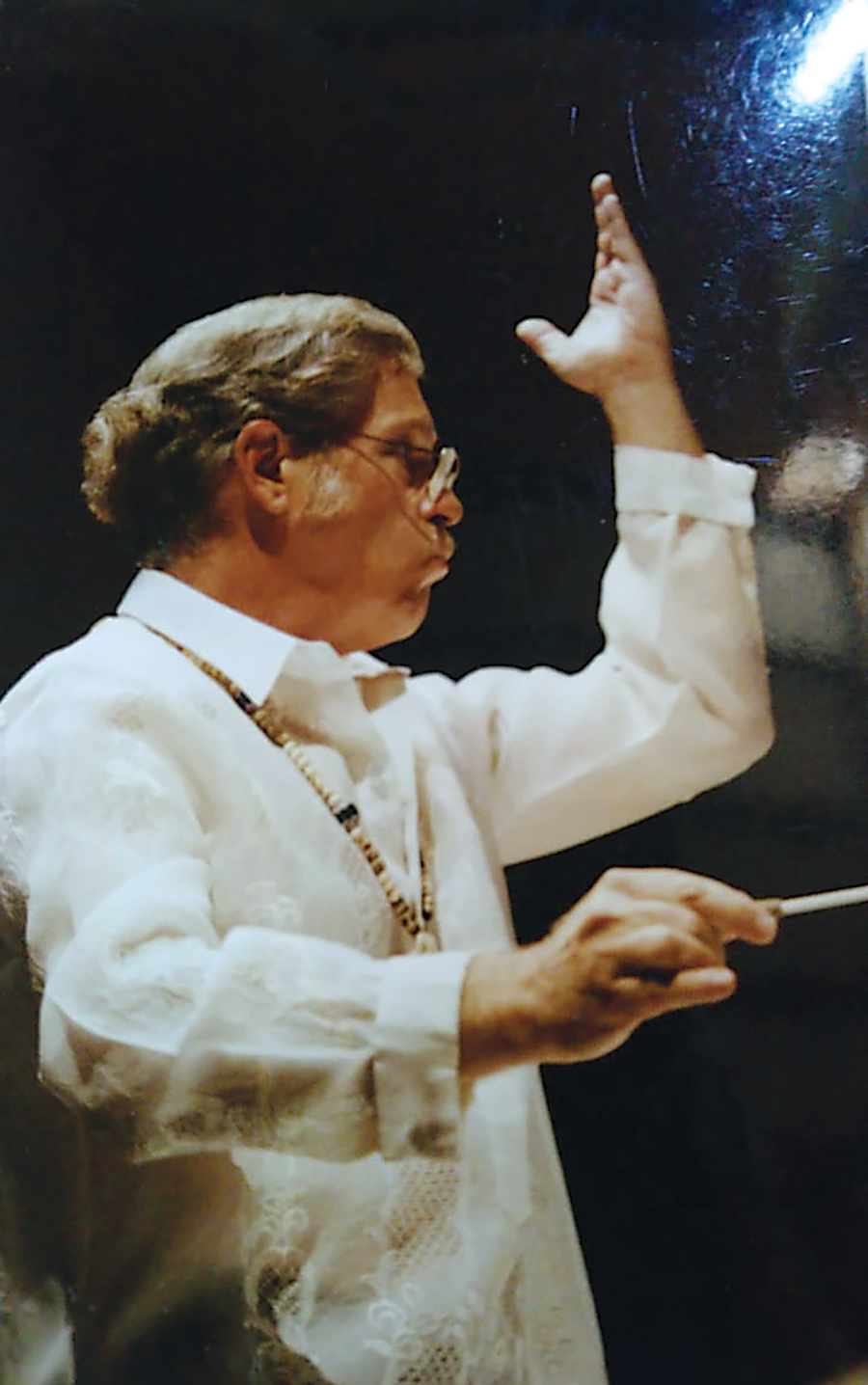
Ukraine “has always been multi-ethnic and multinational,” Weinberg said, and Putin “doesn’t get to tell people who they are.”
Along with misrepresenting history, Russia, a United Nations member, is also “openly flouting international law,” said Associate Professor of Political Science Emily Paddon Rhoads.
The U.N. Charter stipulates that armed force should be reserved for national self-defense and that each member state must respect the national territory and sovereignty of its fellows, she noted, and 141 of 193 U.N. states have condemned Russia’s aggression in Ukraine on these grounds.
Paddon Rhoads also praised “heroic and selfless acts of nonviolent resistance and collective non-cooperation” among Ukrainian civilians. But, she predicted a “protracted insurgency” in Ukraine, with devastating consequences.
Associate Professor of Anthropology Maya Nadkarni noted the rush of Ukrainian refugees into neighboring Hungary, in the context of the Hungarian government’s harsh treatment of asylum seekers from the Syrian civil war in 2015.
While private citizens and Hungarian municipal and civic organizations have shown “an abundance of good intentions and generosity” toward Ukrainian citizens, Nadkarni noted the distressing reality of “uneven distribution of resources, attention, and care” when it comes to the treatment of other refugees, both within Hungary and across Europe.
How will war define ukraine?
“We don’t know exactly what Putin intended, but it’s clear that he didn’t intend this to be a war,” says Professor of Political Science and Chair Dominic Tierney.
Putin wanted to carry out a quick coup in Ukraine but failed, “first and foremost because of the heroic resistance of the Ukrainian forces supplied by Western allies, but also because of extraordinary mismanagement in the Russian military and incredible overconfidence by Putin,” says Tierney, who adds this is partly because Putin is living in a bubble, has been in power for two decades, and is surrounded by ‘yes’ men. “He’s not getting the critical voices that you need before you launch a military operation.”
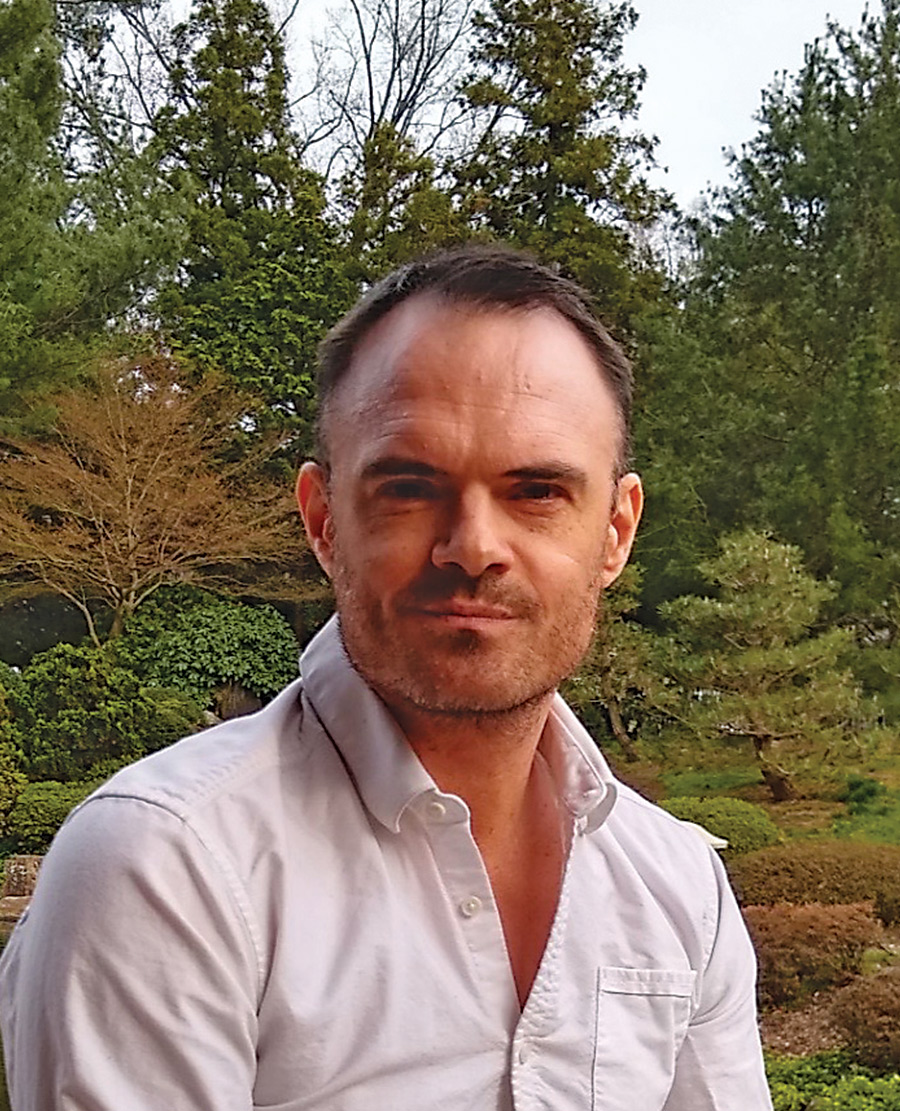
War and peace often blur together in surprising ways.
“In the run-up to the war, Russia paid Ukraine to transship Russian gas across Ukraine to Europe. So Ukraine received a fee for allowing this pipeline to send gas to Europe,” Tierney says. “And remarkably, Russia is still paying Ukraine to send that gas across the country to Europe. Even as Russia is leveling Ukrainian cities, Russia is handing millions of dollars over to Ukraine to pay for this gas that Ukraine then uses to buy weapons to kill Russians. Russia has concluded that keeping the gas flowing is important for Russia’s broader interests, and while it probably doesn’t want to have to pay Ukraine, that’s actually a price it’s willing to pay. Ukraine is willing to take the money that it can use to buy weapons.”
The Russian invasion of Ukraine is entering a new phase. Moscow announced it would reduce military activity near Kyiv and other northern Ukrainian cities and switch its focus to the eastern Donbas region. There have been tentative peace talks although it’s not clear how serious they are.
Even if weeks or months of hard fighting lie in store, the war will likely end with a negotiated deal. Ukraine may need to make some concessions to get Russian forces out.
“Most likely Ukraine will agree it will not join NATO,” Tierney says. “There may also be some token compromise on ‘denazification.’ which is actually easy to compromise on because there aren’t very many Nazis in Ukraine, and perhaps also some compromise on demilitarization of Ukraine.”
The key is that Russians come to see the war as a mistake they never want to repeat.
Putin’s previous and more limited attempts to manipulate the West — like encouraging Brexit and the election of Donald Trump in 2016 — were quite successful because they played on internal divisions in foreign countries.
But the clear-cut aggression involved in invading Ukraine has strengthened bonds between European nations.
“We’ve actually seen an extraordinary response to the Russian invasion of Ukraine, where the European Union has really got its act together. Germany, for example, has transformed its foreign policy in a matter of weeks and is now intending to be a much more serious player on the world stage with military resources to match,” notes Tierney.
Tierney believes this conflict could be the narrative that defines Ukraine in the modern age.
“This war is going to be the founding event in modern Ukrainian history. People are going to be building statues to Zelenskyy and reading out his famous line, ‘We need ammo; we don’t need a ride,’ for a long time. Countries are built on stories, and there are so many powerful stories here that for all the devastation that Ukraine is suffering, this I think will be their great patriotic war.”
— NORA KELLY
Kimberly St. Julian-Varnon ’12, a doctoral student in history at the University of Pennsylvania, discussed race and neocolonialism amid the conflict. “Ukraine is not a white country,” St. Julian-Varnon said, and Putin’s “divide and conquer colonial behavior” puts Ukrainian people of color at disproportionate risk.
Afro-Ukrainians; Syrian and Afghan refugees; and Roma, Indian and Middle Eastern students living in Ukraine are “paying the price” of large-scale political conflict, said St. Julian-Varnon, noting that the European Union does not guarantee aid to third-country nationals and calling for Europe and the U.S. to provide unilateral assistance to Ukrainian citizens.
St. Julian-Varnon helped to contextualize the Russo-Ukrainian war for students, faculty, and staff, with her March 1 talk on campus titled “What is Going On in Ukraine?”
“I have friends who have children who are crying because their homes are being bombed,” said St. Julian-Varnon, who analyzes race and foreign policy in the U.S., Russia, Ukraine, and Central Asia.
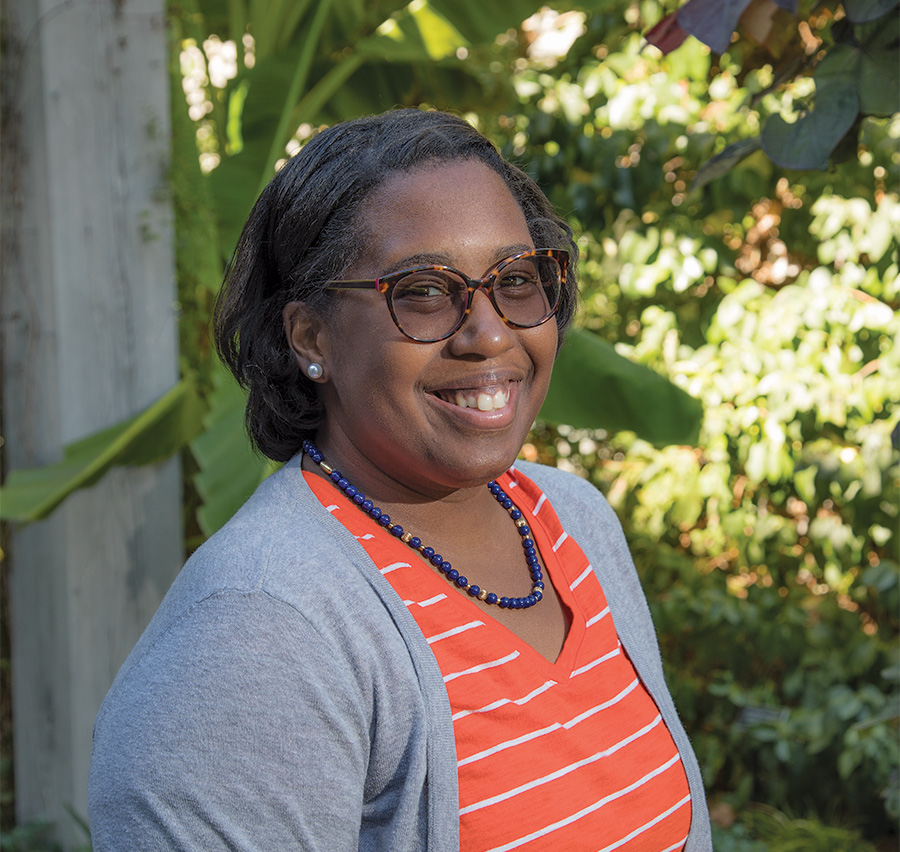
“What we are seeing today, is an extensive Russian offensive, essentially to cut off Kyiv from Western Ukraine … Babi Yar, the memorial to one of the worst atrocities the Nazis committed against Eastern European Jews, has been bombed,” she added. “I went by that metro station every day on my way to the archives.”
She asked Swarthmore students to think critically about Putin’s claims about the war, and especially how they are represented in the media today.
“What does it mean when we ask questions based on the historical propositions of someone like Vladimir Putin?” she asked. “How does this shape the narratives that we’re hearing, that are repeated?”
She urged others to help.
“All of us can do something — if it’s tweeting, if it’s reaching out, or if you come from a particular community, reaching out to that community,” she said.
“Because this is a crisis on both sides of the border in Russia and Ukraine. And it’s going to get much worse.”